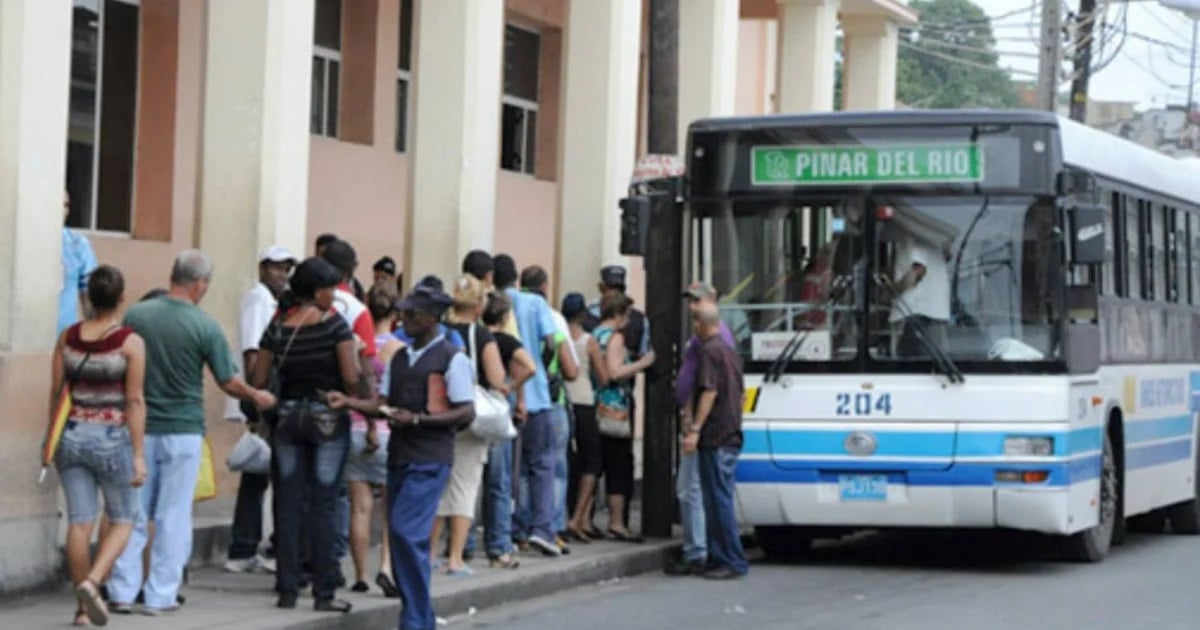The promising news regarding transportation seems to be vanishing from the lives of Cubans. This is evidenced by the halt of public transportation in the province of Pinar del Río due to a lack of fuel, according to authorities.
The Provincial Directorate of Transportation in Pinar del Río announced on Thursday, September 12, that "due to the insufficient availability of fuel in the country," they would adopt several measures, including:
- Suspending public transportation in the capital city starting Saturday, September 14.
- Halting intermunicipal routes from the capital city to other areas, which will be resumed when fuel availability permits.
- Suspending the departures of the train covering the Pinar-Havana route.
They also noted that on that day, the train traveling from the city of Pinar del Río to Guane had one departure for the transportation of students, who will return on September 16 at the usual time.
Transport Crisis in Cuba
The transportation situation in Cuba is catastrophic. Sometimes due to a lack of fuel and other times due to the outdated vehicle fleet on the island, lacking in spare parts and with years of exploitation that exceed those planned by the manufacturers.
Cuban President Miguel Díaz-Canel has acknowledged the crisis in this sector but justified it as a phenomenon linked to the global crisis. During one of his YouTube programs, 'Desde la Presidencia,' which he presents himself, the president stated that the sector is experiencing "the worst moments of recent years."
As of the end of April, 52% of the routes of the provincial transportation companies were paralyzed, indicated the Minister of Transportation (Mitrans), Eduardo Rodríguez Dávila, to the official newspaper Granma. According to the official's data, 5.9 million travelers were transported daily before, and now only 2.7 million; thus, many people are forced to use private transportation, whose prices are often unaffordable for most Cubans.
The crisis has reached such a point that the special municipality of Isla de la Juventud faces a serious risk of becoming isolated. Rodríguez Dávila said on this matter that ensuring transportation to and from the island has always been a priority, but the aging of the vessels and the lack of proper maintenance are pushing the situation to the limit.
In line with this situation, recently, the national coordinator of the Committees for the Defense of the Revolution (CDR), Gerardo Hernández Nordelo, sparked criticism by boasting about the organization's strength for managing to get a half-broken bus running in Villa Clara. "Where there are CDR members, there are no ghosts! And much less in Camajuaní!" Hernández wrote on his social media, along with a video showing him pushing a bus with a group of people.
Far from being amusing, the situation of pushing a bus highlights a problem that directly affects the daily lives of thousands of Cubans who rely on a collapsed transportation system.
Frequently Asked Questions About Cuba's Transportation Crisis
Given the severity of the transportation crisis in Cuba, many people have pressing questions. Here are some frequently asked questions and their answers to provide more insight into the situation.
Why is public transportation in Pinar del Río halted?
Public transportation in Pinar del Río is halted due to an insufficient availability of fuel in the country.
How has the transportation crisis affected daily life in Cuba?
The transportation crisis has severely impacted daily life, forcing many individuals to rely on private transportation, which is often unaffordable for the majority of Cubans.
What measures are being taken to address the crisis?
Measures include suspending public transportation in key areas, halting intermunicipal routes, and suspending train services. These measures will be adjusted based on fuel availability.
What are the long-term implications of the transportation crisis?
Long-term implications include the risk of isolation for certain areas, increased reliance on outdated vehicles, and a greater economic burden on citizens who must use costlier private transportation options.
